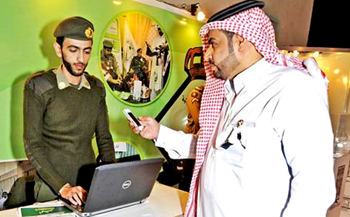Jeddah, Jun 27: Family visit visas will continue to be issued throughout the year without any interruption, an informed source at the Directorate General of Passports said. Renewal of such visas will also be possible in accordance with the rules laid down by the government, the source added.

The source said if the visa was issued by the ministry for a duration of one month, its renewal will be every month and if it is issued for three months it will be renewed every three months.
The source explained: “The visa renewal and extension is done through a unified electronic system for all nationalities and individuals and there is no exception for any specific category — like those born in Saudi Arabia or elsewhere. The extension can be done throughout the year through the ‘Abshir’ service of the Interior Ministry.
“If a visitor overstays the allowed period, he/she will be subjected to financial penalties, according to the law,” the source said.
“If a visitor overstays his visa for the first time, he will be fined SR15,000 followed by deportation. However, if the violation is repeated by the same visitor, the fine will increase to SR25,000 and three-month jail followed by deportation. In case of a third violation, the fine would be doubled to SR50,000 with six-month jail and deportation.”





Comments
Add new comment